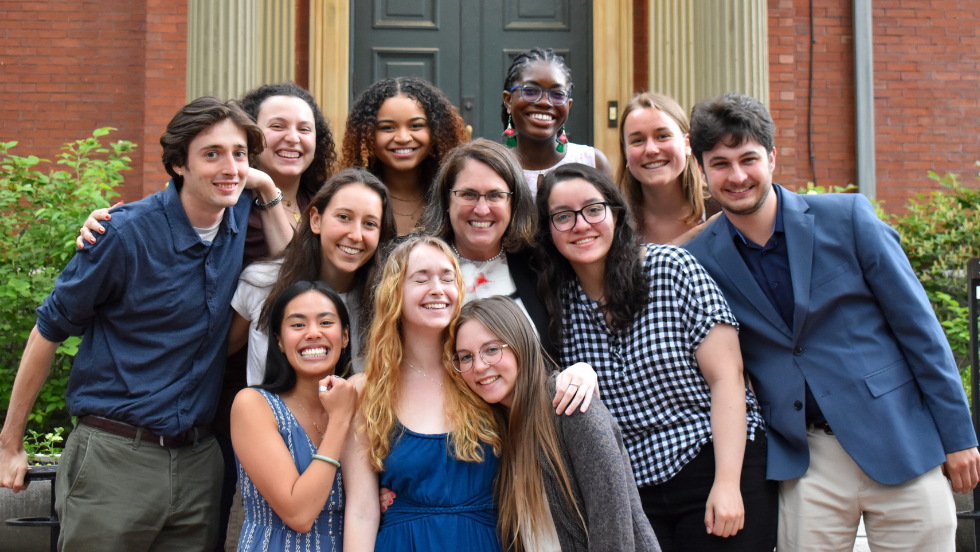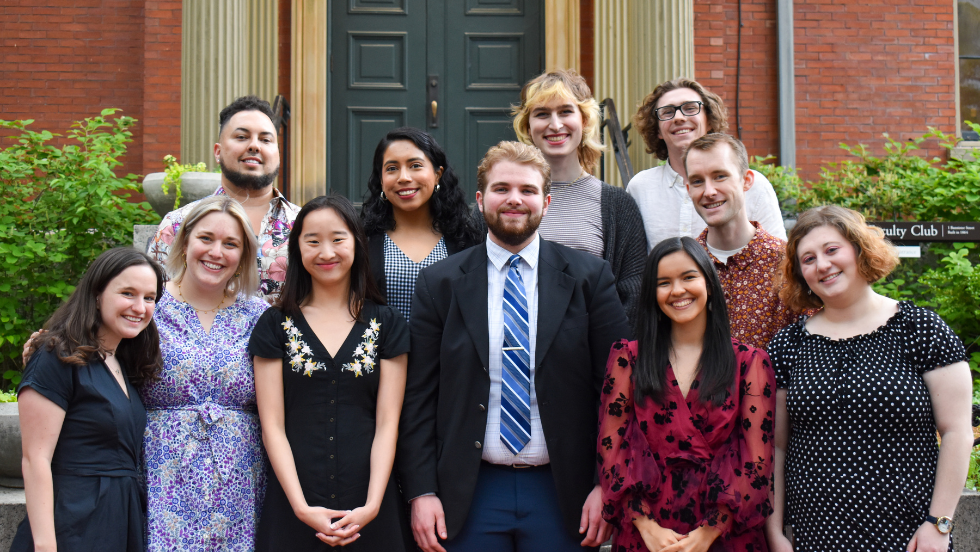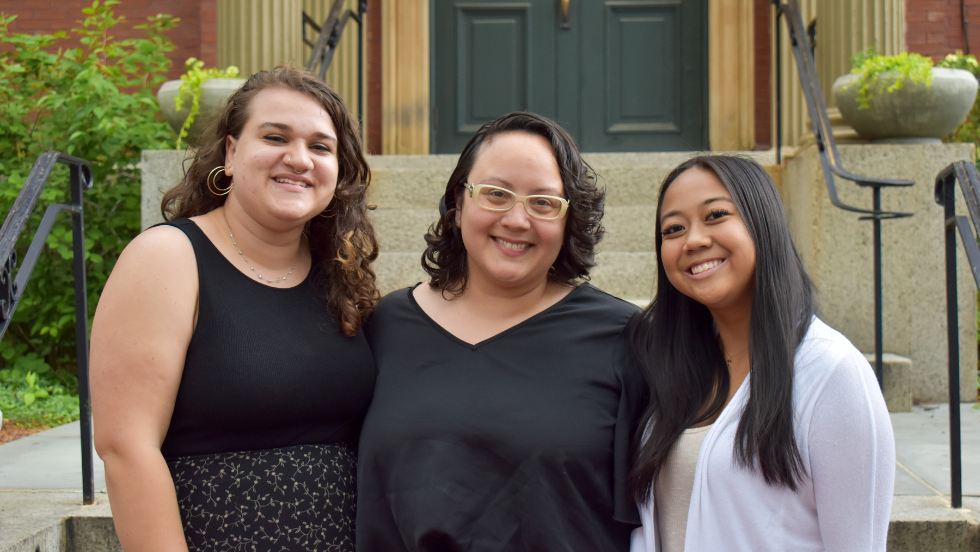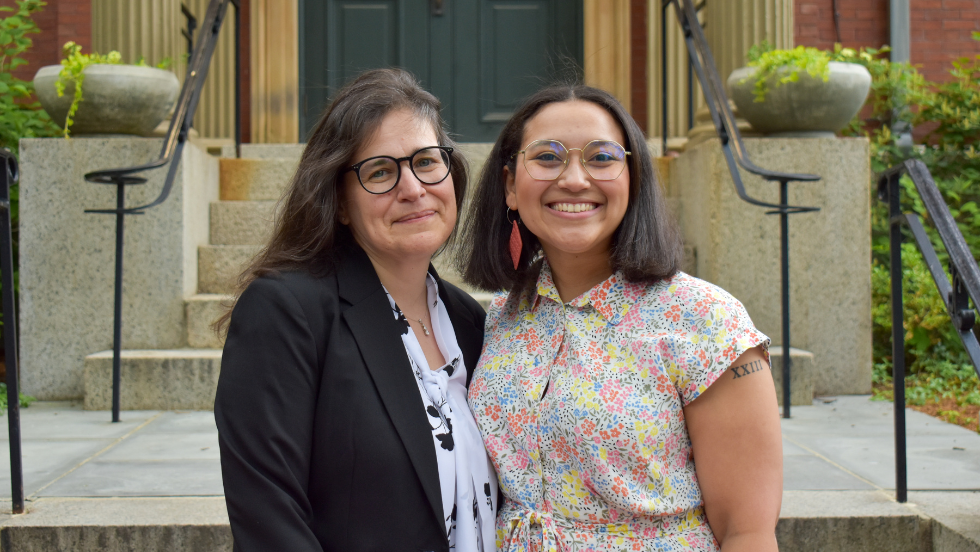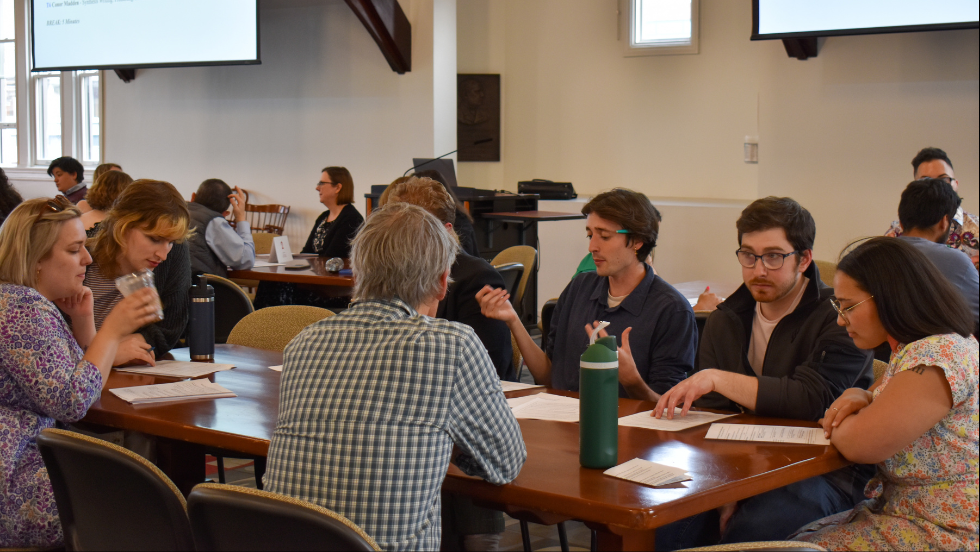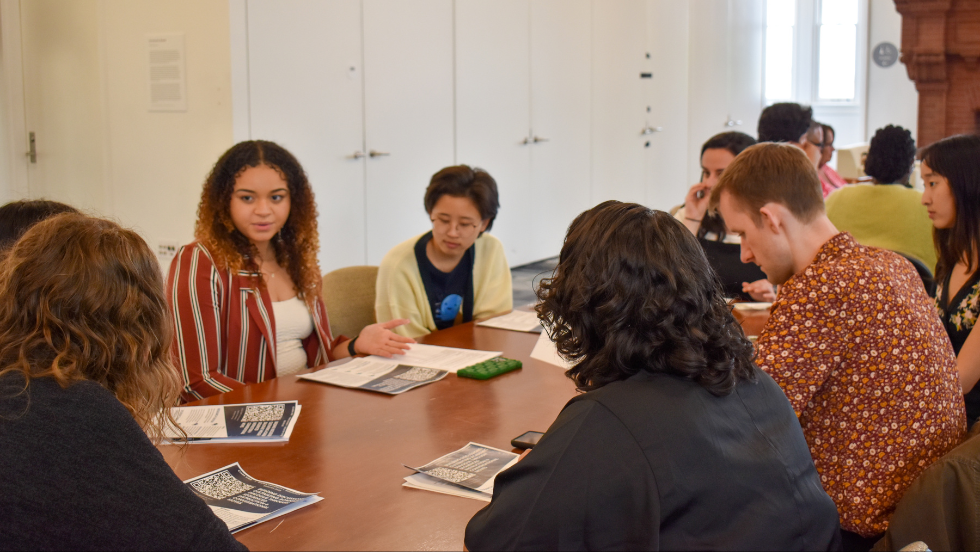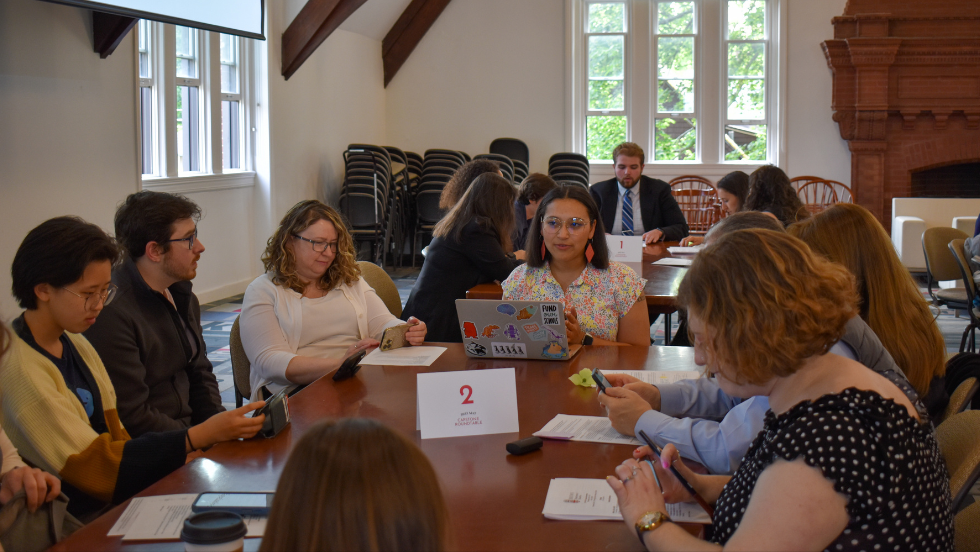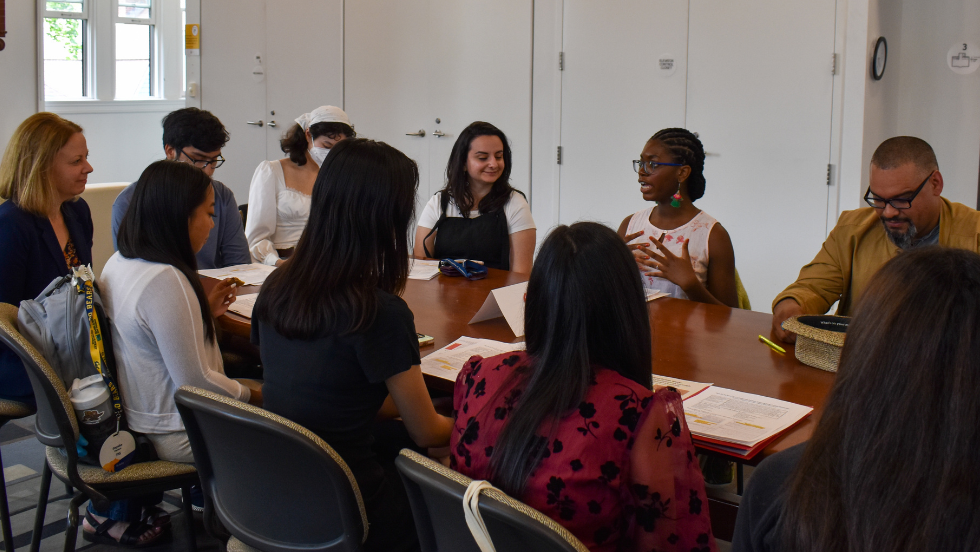The MAT Capstone Project is an application of the theories introduced in courses over the summer, fall, and spring semesters. During their yearlong residency placement, Brown's MAT students complete a long-term inquiry project that explores their own beginning teaching practice. In carrying out this project, they investigate their teaching experience as a means of improving classroom practice and student learning.
Students select a standard and teaching practice that directly applies to their classroom and community context, investigate what others have learned about this teaching practice, create a unit of instruction, develop diagnostic, formative, and summative assessments, and reflect on student learning.
"The presentations of these inquiry projects highlighted the tremendous work our MATs have done not only developing their practice but investigating the impact of their work on student learning," says Professor Diane Silva Pimentel, director of the program.
"This event provided a vibrant space for our pre-service and local in-service educators to engage in rich discussions about culturally responsive practice. I'm so proud of our graduates this year and know they will be dynamic contributors to their school communities and the field of education."
Below are the names of our MAT students and the titles of the presentations that they gave at the May 24 roundtable event.
| Andrea Aspajo Berdiales | Same Event, Different Stories: Scaffolding the Analysis of Multiple Narratives in History |
| Marie-Anne Barrón Puertas | Highlighting Student Voices: Promoting Strong Student-Centered Literary Discussions |
| Annemarie Bell | Reading for Empathy |
| Callie Bouton | Integrating Textual Evidence in Writing |
| Skye Brodsky | The Overlap: Building Analysis Skills through Symbolism |
| Ronan Fitzgerald | Talk To Me: Using Student Conferences to Increase Student Work Completion |
| Phuongthao Hoang | Culturally Relevant Literacy & The Multimodal Argumentative Essay |
| Grace King | “Now Write That Down!”: Deepening Student Self-Efficacy for Historical Reasoning |
| Noa LaMaskin | Let’s Talk About It!: Increasing Student’s Mathematical Confidence through Structured Dialogues |
| Maya Lehrer | Highlighting Student Voices: Promoting Strong Student-Centered Literary Discussions |
| Conor Madden | Synthesis Writing: Promoting Critical Thinking and Rhetorical Awareness |
| Patrick Mignanelli | Friendly Feedback: Using Peer Feedback To Improve Student Writing and Historical Analysis |
| Sara Montoya | Centering Lived Experience - Intersectional Feminist Pedagogies in Ethnic Studies - Translating Theory to Practice |
| Opeyemi Olagunju | “How Do You Know That?”: Supporting Students’ Reasoning Skills Through Questioning |
| Daysha Patalot | Embedding Real-Life Math Applications to Increase Student Engagement and Performance |
| Daaé Ransom | Mapping the Path to Exposition: Self-constructed Concept Maps Scaffold Expository Writing in Secondary MLL Biology |
| Thomas Reid | Beyond Group Work: Cultivating Collaboration through Project-Based Learning |
| Brittany Ruiz | "Let's Lock In": Improving Critical Engagement through Media Literacy |
| Ciara Sing | Building Discussions: Cultivating Academic Dialogue Through Sequenced Instruction & Conversational Moves |
| Julissa Torres | Empowering Writers: Creating Stories and Delivering Messages through Process Writing |
| Bridget Wall | What's in the News?: Increasing Student Engagement and Historical Connections through Media Literacy |
| Dylan Welch | Analyzing Metaphors in Poems |
| Annie Zavitz | Reading Between the Lines: Using Graphic Organizers to Support Inference-Based Analysis |
| Megan Zhang | Students as Participants in History: Using RAFT Writing to Catalyze Students' Historical Thinking |
